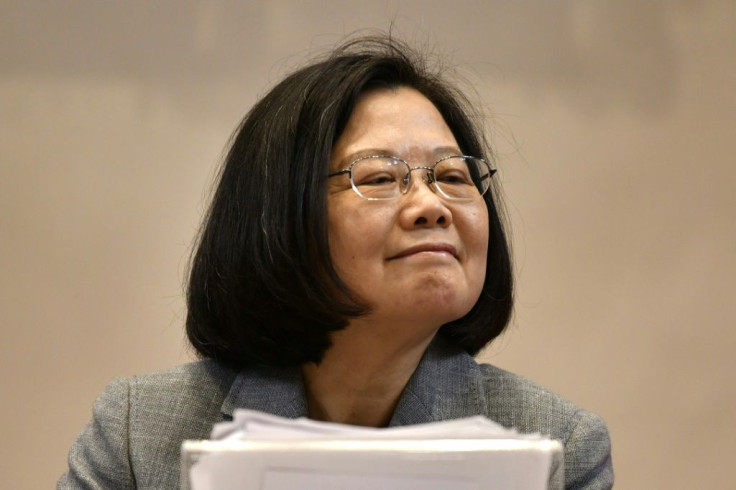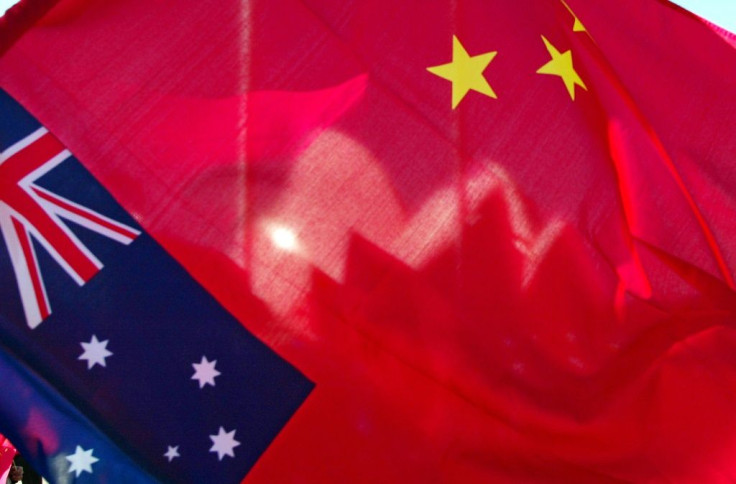Will Hong Kong Unrest Help Taiwan’s Pro-Independence President To Retain Power?

Taiwan’s voters are all set to decide Saturday (Jan. 11) on who will rule over the island for the next four years. However, the ramifications of this election may be felt far beyond the country’s borders.
Developments in China have on many occasions cast a shadow on Taiwan’s elections, and this election is no different. In the run-up to the 1996 presidential election in the Republic of China -- the first in Taiwan’s history — the People’s Republic of China (PRC) lobbed missiles into the Taiwan Strait. Beijing considers Taiwan a renegade province, and has repeatedly sought reunification. But the voter turnout for that election was around 76%, showing that the bid to discourage the electorate from voting for the “pro-Independence minded” presidential candidate Lee Teng-hui failed. Lee won over 50% of the popular vote.
Democratic Progressive Party (DPP) and Kuomintang (KMT) are the two major players in Taiwan’s politics. While KMT favours closer ties with the People’s Republic of China, DPP’s support base backs independence. In the 2008 presidential election, DPP candidate Frank Hsieh used the unrest in Tibet to put his KMT nominee Ma Ying-jeou on the mat. But Ma won an overwhelming 58% of the popular vote.
In the 2020 presidential election, it is the protests in Hong Kong that are casting a long shadow. The unrest in Hong Kong over the now-withdrawal of an extradition bill has given current Taiwan President Tsai Ing-wen a new lease of life. Exactly a year ago, in January, 2019, Tsai quit as DPP chairperson following a string of electoral defeats in local polls. At that time, Han Kuo-yu, the mayor of Kaohsiung in southern Taiwan and KMT’s nominee in the current presidential polls, was seen as the leader-in-waiting. In a remarkable turnaround, Tsai is now the frontrunner, with opinion polls showing her enjoying a 20-point lead over rival Han.
Observers say Beijing’s manoeuvres have helped Tsai turn the tide in her favour. Last year, PRC President Xi Jinping called for both sides to send representatives for unification talks under the ‘one country, two systems’ (OCTS) model now applied in Macau and Hong Kong. Tsai rejected the overtures, suggesting that the OCTS model application has led to a backlash in Hong Kong.
Against the backdrop of the unrest in Hong Kong, Tsai has used the 2020 election as a “de facto referendum” on protecting Taiwanese identity. Tsai’s slogan in her quest to retain the presidency is ‘Hong Kong Today, Taiwan Tomorrow,’ and she even read out letters from protesters in Hong Kong in televised debates and campaign stops. The subtext is clear: the way Taiwanese vote will decide on whether or not they will be able to enjoy the fruits of democracy in the future.
At a time when China has been trying to diplomatically isolate Taiwan, Tsai is also asserting her nation’s sovereignty, say observers. In November last year, Wang Liqiang, a Chinese national, sought political asylum in Australia, and is said to have blown the lid on Beijing’s “influence peddling” operations in Taiwan and Hong Kong.
Beijing claims Wang is a convicted fraudster and was wanted by police in the Mainland. Wang claims his PRC handlers gave him a forged South Korean passport to enter Taiwan in order to rig its political system. Wang says plans were being drawn up to influence the 2020 presidential election. It is not known whether Taiwan acted in response to Wang’s revelations, but it hastily passed legislation in the last week of December to curtail Chinese activities on the island.

The new law proscribes “hostile” foreign forces from lobbying, campaigning, making political donations, unsettling social order or disseminating disinformation related to elections. If found guilty under the law, the violators face a prison term and penalty of around $300,000. Beijing’s Taiwan affairs office has slammed the new law.
Considering these developments, all eyes are on who voters will pick to lead Taiwan in the new decade. If Tsai wins, observers expect tensions to rise in the straits. Where does that leave Taiwan’s protector—the United States -- which has a statutory obligation to defend the island. The Trump administration has sought to strengthen defense ties with Taiwan to enhance deterrence.
This is evidenced from the $8 billion deal to sell 66 F-16 Viper fighter to Taiwan. Experts say if the transaction goes ahead, it would be the first time since 1992 that the U.S. has sold F-16s to Taiwan. The new fleet would significantly boost Taiwan’s defenses. Defense studies experts say, the new F-16 variant, which is able to carry a wide range of short- and medium-range air-to-air missiles, is better equipped to counter the threat of an air strike from the Mainland’s fourth generation aircraft like the Su-35. That the Trump administration approved the deal at a time when the U.S. and the People’s Republic were engaged in tough trade negotiations, which were stalling the global economy, says a lot. In 2020, the Taiwan Strait is set to get a lot more interesting.
(Kalpit A Mankikar is a journalist and has completed his China studies from the London School of Economics)
© Copyright IBTimes 2024. All rights reserved.




















